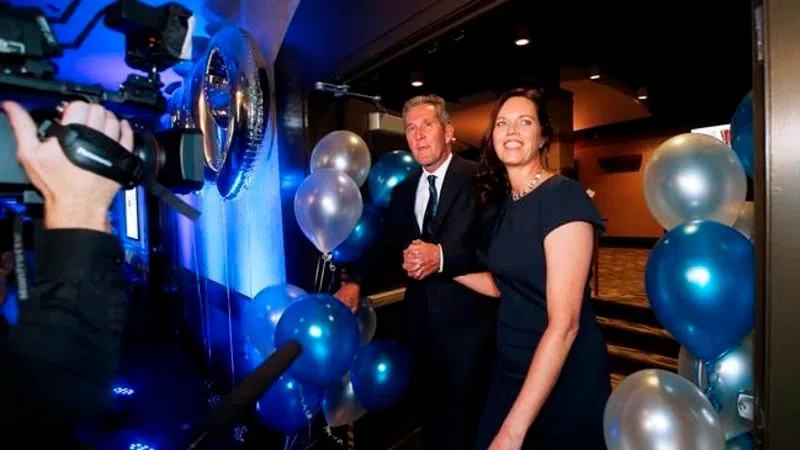
Manitoba premier sees majority as affirmation; admits PCs must ‘listen better’
WINNIPEG — Brian Pallister and his Progressive Conservatives went early and won big.
Pallister called an election more than a year before it was scheduled and the vote Tuesday ended with a second consecutive majority government for the Tories.
The party was projected to capture 30-plus seats in the 57-seat legislature with an agenda to continue cutting costs, streamlining health care and reducing taxes.
Pallister, who recaptured his Winnipeg seat of Fort Whyte, told supporters that voters opted to move forward.


